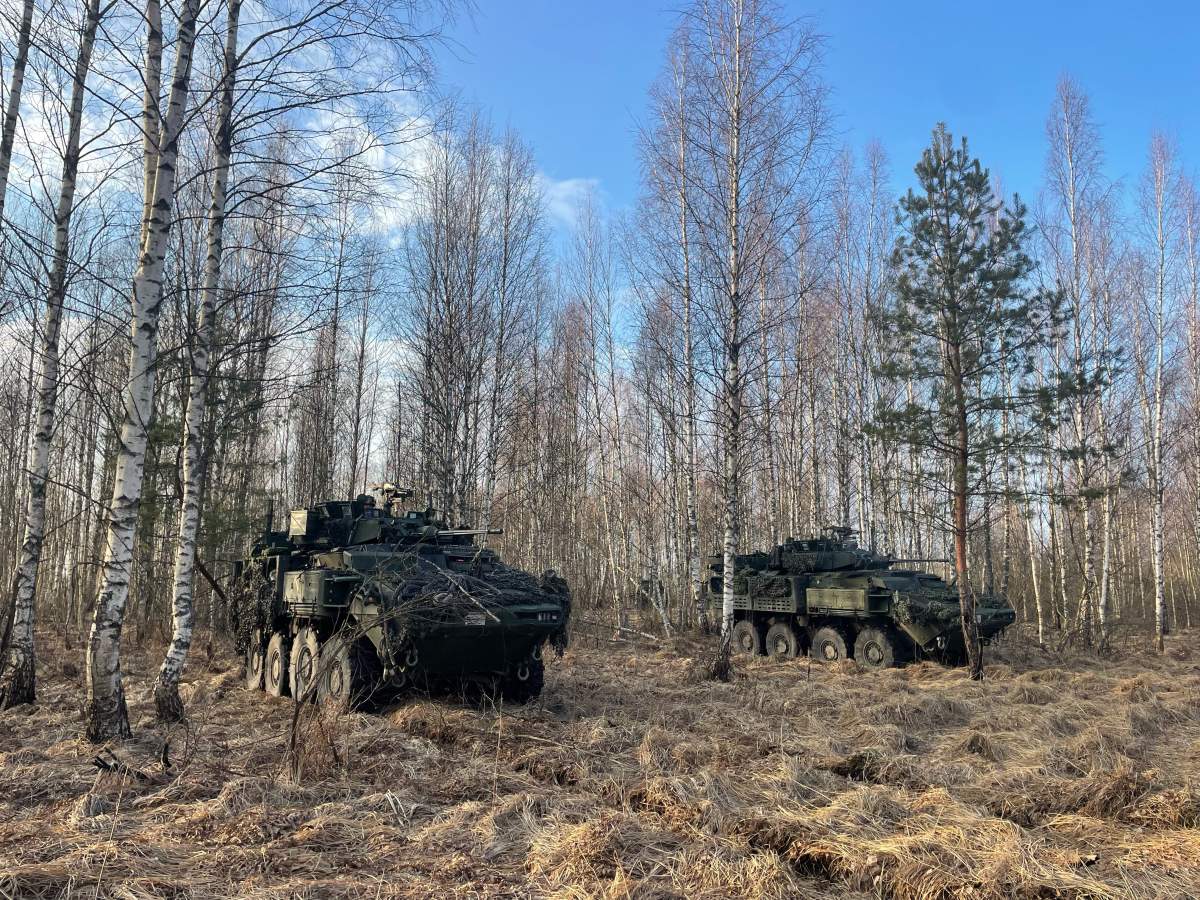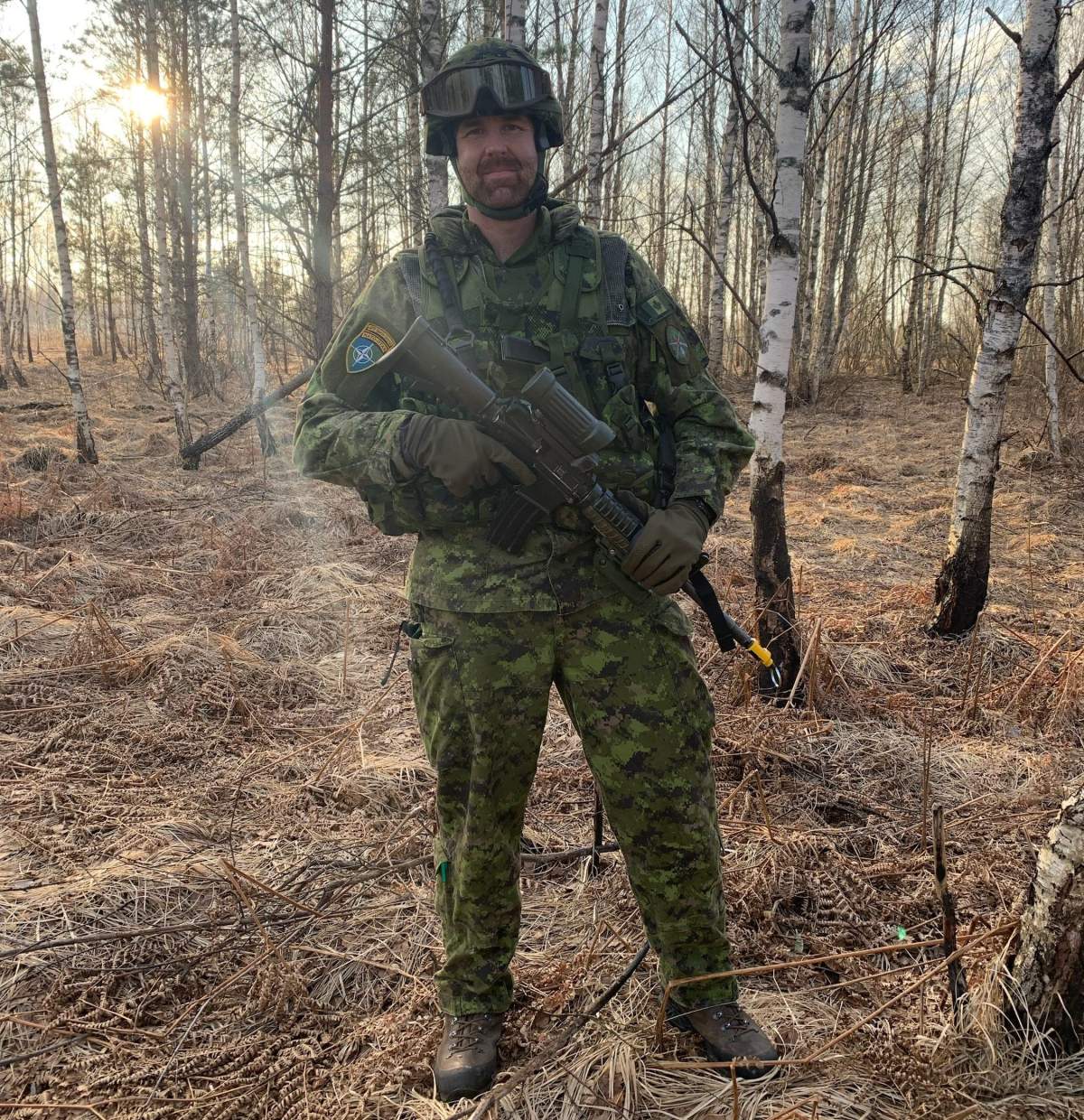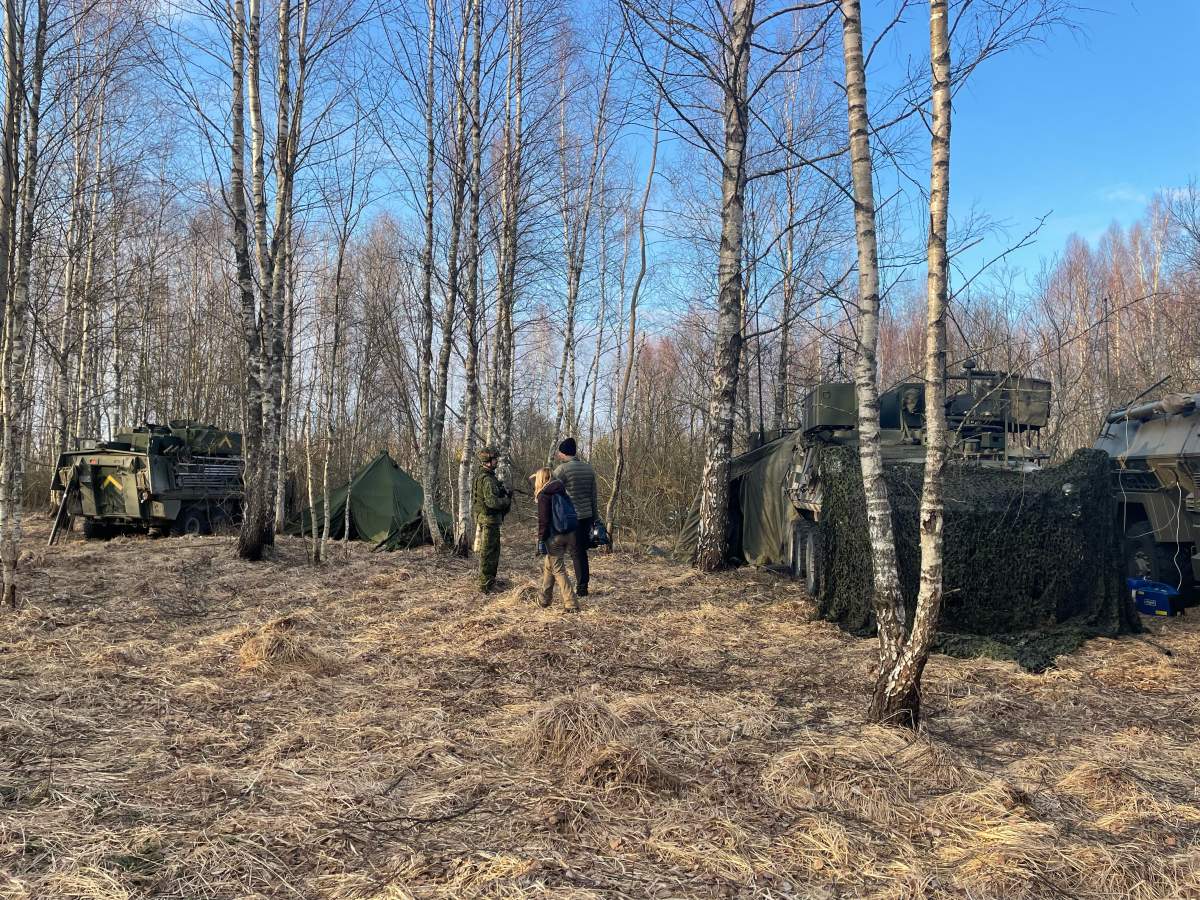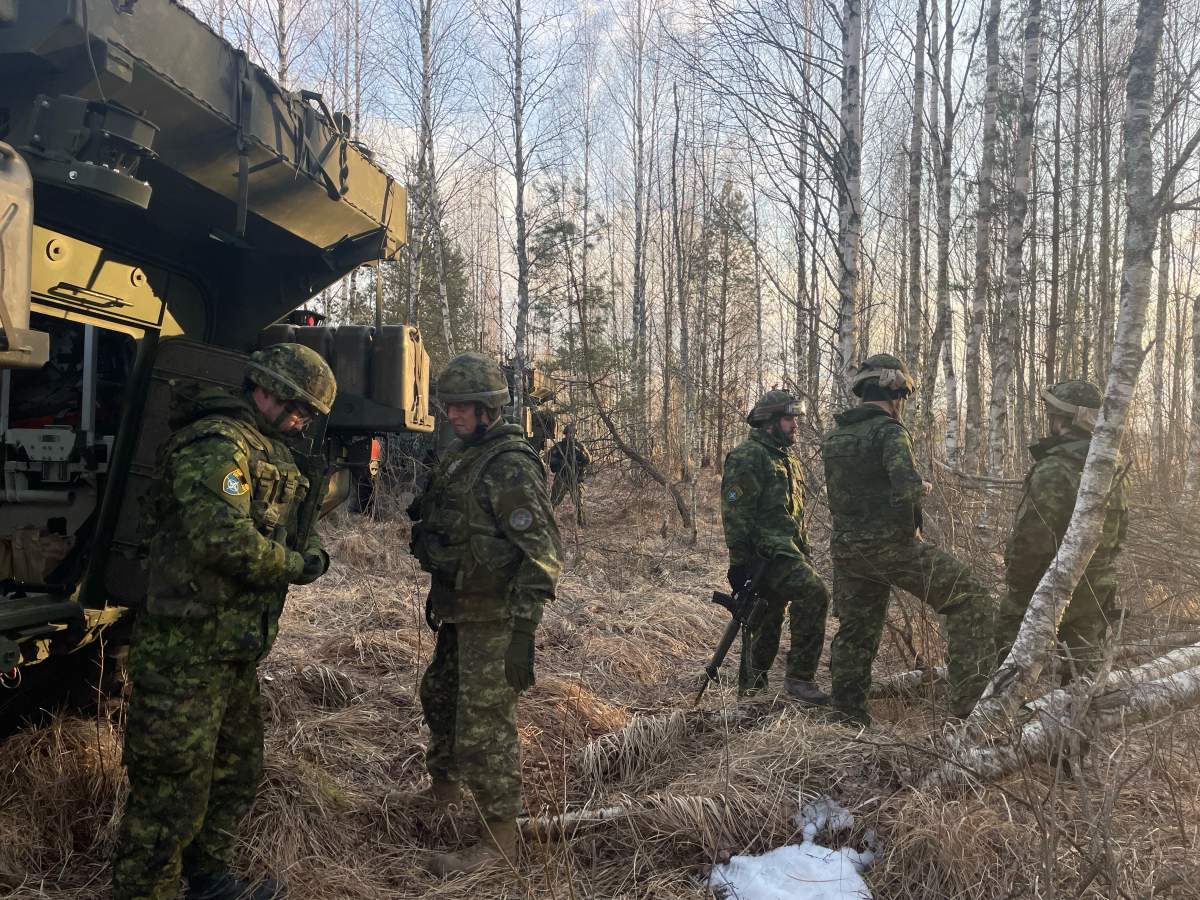Canadian troops leading a NATO battle group in Latvia are ready to switch from training to operations in a matter of “hours, not days” if the war in Ukraine escalates, the group’s commander says.

The small Baltic state of Latvia, which shares a border with both Russia and Belarus, has played host to a battle group of 1,500 NATO troops, led by 540 Canadians, since 2017. This is Canada’s largest military deployment.
The troops were sent to Camp Adazi, just outside the Latvian capital of Riga, at the behest of NATO after Russia’s annexation of Crimea in 2014 led to heightened fears over a Russian invasion in wider Europe.
The military base is set in a sprawling woodland northeast of the city and is currently a hive of activity — the air abuzz with the sounds of tanks and military vehicles heading out on training exercises.
With those fears of a Russian invasion now being a reality, NATO’s Canadian battle group commander says troops are ready to fight — but doesn’t want to exaggerate the threat to wider Europe just yet.
“We do a lot of training in order to be ready, and this battle group already has a very high state of readiness to be able to go from a training posture to an operational posture very quickly,” Lt. Colonel Dan Richel says.
“The mission remains a deterrence mission with the capability to defend as required.”
Mission focused on defending Latvia
Canadian troops play a crucial role here in organizing exercises and training Latvian troops, alongside 10 NATO member states at Camp Adazi.
Canadians are now practising tactics aimed at fighting a superpower with superior firepower, part of an institution-wide shift taking place after years of focusing on counter-insurgency and roadside bombs.
At Camp Adazi, the focus is now on fighter jets, artillery, tanks and missiles.
“(Canadians) bring manoeuvrability, firepower and general flexibility to the battle group,” Richel says.

Get daily National news
“We train for conventional combat operations in a defensive nature (and) to ensure that we can defend Latvia in case of any aggression on its territory.”

The Latvian deployment was renewed in 2018 for another four years to March 2023.
Days before the Russian invasion began in February, Prime Minister Justin Trudeau pledged to bulk up forces in Latvia, announcing that Canada would deploy an additional 460 Canadian troops to the region to help NATO in its standoff with Russia, including an artillery battery, a frigate and a surveillance aircraft. The artillery battery will consist of 120 troops with four M777 Howitzer guns — a mobile, long-range unit.
Troops 'ready for whatever we might have to face'
When Global News visited Camp Adazi on a brisk Wednesday afternoon, NATO troops were on day one of an eight-day training exercise, mounting a conventional defence in the face of outside aggression.
In this scenario, the “invading Russians” were being played by American and Italian troops, Richel says.
“A good opposition for us,” he laughs.
A small, mobile headquarters had been set up in the middle of vast woodland in the northernmost confines of Camp Adazi — two armoured vehicles backed together and covered with a tarp.
Inside, troops were crammed in beside one another, bent over computers. A big focus here is learning how to shore up cyber defences and conceal equipment, Richel explains.
Due to the threat of cyberattacks, the military now has to operate “as it did in Germany in the 70s and 80s,” he says.
He says being stationed in Latvia is invaluable for Canadian troops – working alongside other NATO states and the Latvia mechanized infantry brigade – as well as for the Latvians they are training.
“Of course, when we see situations like the ones we’re living in now, it makes us train that much harder in case we have to carry out similar types of operations,” Richel says.
“Now it just becomes that much more important that we maintain that focus and that we get ready for whatever we might have to face.”
Canada's Latvian deployment likely to be extended
Colonel Jean-Francois Cauden, commander of the Canadian Task Force, says he believes the NATO mission has so far been successful in deterring Russian aggression.
He says he is not currently concerned about an invasion in wider Europe.
Any invasion of a NATO state would trigger what’s called an Article 5, which covers “collective defence,” and means that an attack on one ally is considered an attack on all allies.
However, if the situation changes, Cauden says “we are trained and we are ready to fight.”
“It is definitely concerning. But we are trained for this … as the situation evolves, the troops are getting ready if they need to be,” Cauden says.
“The situation right now really speaks to the reason why we were here in the first place.”
Due to the Ukrainian war, Cauden believes the Latvian mission will likely be extended beyond its expiration date of March 2023. However, he says he has not yet received a decision from the Canadian government on that.
Latvian president Egils Levits told Global News on Thursday during an exclusive interview that he was thankful to Canada for the troops stationed in Riga, saying it’s “very important for Latvian security and for the security of the whole northern European region.”

“The transatlantic links between Europe and Canada are very, very important for us Europeans, and I think also for Canadians. Together we have the basis for the Western value system and we should defend our values.”
Captain Alan Li, the battle group’s Canadian fire support officer, says his deployment to Afghanistan has helped him prepare for the mission in Latvia.
“It’s a different environment, different context, but in many ways, it’s also very similar. Once again, we’re working in a coalition with a lot of different partners, a lot of people that are all speaking different languages,” he says.
In a message to Canadians back home, he says: “I just want to reassure Canadians that their soldiers are always constantly working hard, and we’re vigilant and we’re doing our best to represent Canada on the world stage.”
- Olympic medallist wins bronze, confesses on live tv to cheating on girlfriend
- Parents condemn $176 fines for hostel staff after daughters died from tainted alcohol
- U.S. sinks to its lowest spot in new global corruption ranking
- Canadians wait for flights out of Cuba, aid struggling to get in amid U.S. energy blockade












Comments
Want to discuss? Please read our Commenting Policy first.